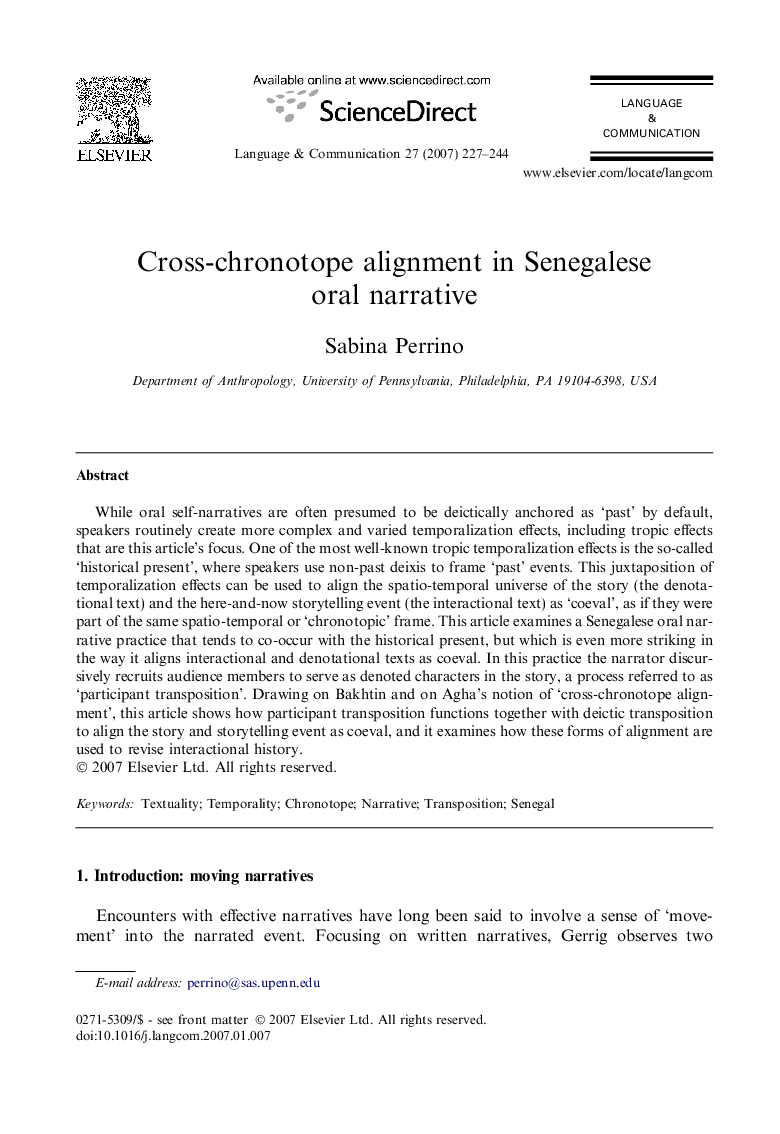| Article ID | Journal | Published Year | Pages | File Type |
|---|---|---|---|---|
| 934933 | Language & Communication | 2007 | 18 Pages |
While oral self-narratives are often presumed to be deictically anchored as ‘past’ by default, speakers routinely create more complex and varied temporalization effects, including tropic effects that are this article’s focus. One of the most well-known tropic temporalization effects is the so-called ‘historical present’, where speakers use non-past deixis to frame ‘past’ events. This juxtaposition of temporalization effects can be used to align the spatio-temporal universe of the story (the denotational text) and the here-and-now storytelling event (the interactional text) as ‘coeval’, as if they were part of the same spatio-temporal or ‘chronotopic’ frame. This article examines a Senegalese oral narrative practice that tends to co-occur with the historical present, but which is even more striking in the way it aligns interactional and denotational texts as coeval. In this practice the narrator discursively recruits audience members to serve as denoted characters in the story, a process referred to as ‘participant transposition’. Drawing on Bakhtin and on Agha’s notion of ‘cross-chronotope alignment’, this article shows how participant transposition functions together with deictic transposition to align the story and storytelling event as coeval, and it examines how these forms of alignment are used to revise interactional history.
